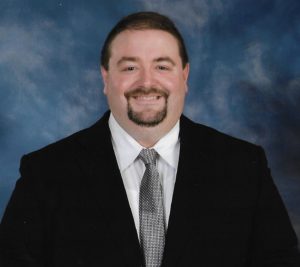By: Brian G. Chilton, Ph.D. | January 7, 2024
5 Signs of a False Shepherd Redux is an update to a previous post. A link to the original post is found at the bottom of this article. While writing the Top 10 list of the most viewed articles of 2023, I observed that an article named “5 Signs of a False Shepherd” topped the list. However, the article was very short and added a link to a podcast that is no longer available. The platform on which it was found took down the show. Considering that the article received as much attention as it has, I feel like I should further flesh out the information originally found on the podcast. Thus, let’s look at 5 signs of a false shepherd redux.
Image of the Shepherd
The image of a shepherd is used to portray a spiritual leader in Scripture, sometimes even a ruler. Shepherds are supposed to look out for their sheep. In some ways, a shepherd was like an ancient MMA fighter, defending the sheep from attacks from people, predators, and the elements. The role of a shepherd is important because sheep are vulnerable to attacks. If a shepherd is good, then the sheep will be protected. If the shepherd is bad, then the sheep are as good as dead.
Jesus’s Analogy of a False Shepherd
It is no mistake that Jesus and the early church referred to the leader of the church as a shepherd. Like Zechariah, Jesus and the early church also warned against false shepherds, even calling false shepherds “wolves in sheep’s clothing” (Matt. 7:15).[1]
As in Zechariah’s time, false teachers (or, false shepherds) abound. Often false teachers, or shepherds, hold a great deal of charisma. They may be attractive. They may be persuasive and hold multiple talents. However, Zechariah points out that while some people are fooled by false shepherds, God never is. And God would replace the leadership of the false shepherds in the community, leading to transformation and genuine security for the people.[2]
Is there a way that we can see a false teacher? Zechariah says we can. The chief way to expose a false shepherd is to examine his teachings, his character, and his devotion. In Chapters 10 and 11, one will find five characteristics of a false shepherd. Let’s look at these five characteristics in Zechariah 10–11.
First Sign of a False Shepherd: Signified by False Doctrine (10:1-2a)
The teaching of the false shepherd is false and does not remain true to the revelation of God. Zechariah shows two ways that false shepherds had led the flock away from God. First, false shepherds accepted the validity of household gods. Because the people needed rain for their fields, they panicked and accepted the help of other gods over Yahweh—the God of creation. Second, false shepherds encouraged the people to worship the gods of their culture rather than the God of the heavens and the universe.
This happens today in three ways.
Focus on Opinions Rather than Truth.
1. False teachers focus on their opinions rather than truth. False teachers do not give much attention to the truth. They elevate their ideas and opinions. If their opinions contrast with the known truth, then they will dismiss the means to know the truth, which leads to the second reality of false teachers.
Deny the Reality of Truth.
2. False teachers will deny the reality of truth. When confronted with their error, the false shepherd will dismiss that truth is knowable. Instead of admitting fault, they would rather claim that the truth cannot be known.
Teach What is Popular Rather than What is True.
3. False teachers will teach what’s popular rather than what is true. False teachers are leaves flowing in a raging river. They are cast about by every popular fad and trend. There is no foundation to the false shepherd. The true shepherd stands by the truth. Even when society has turned against the truth, the true shepherd will be seen steering his sheep against the flow.
Second Sign of a False Shepherd: Signified by Self-Exaltation (10:2b, 3)
False shepherds also exalt themselves rather than God. Often, they will place themselves in positions that only God should hold. In Zechariah’s day, diviners were notorious, dating back to the time of Moses. Diviners claimed to see visions and have dreams that were contrary to the Word of God. In stark contrast to the private self-professed revelations of these individuals, God would openly reveal truths through his prophets and teachers. Back in the days of Moses, diviners would manipulate the elements to make themselves look powerful. They would provide false information in order to benefit themselves.
But why do false prophets elevate themselves in this manner? We find two reasons in Zechariah 10:2–3.
Popularity.
1. Popularity is a reason for their self-exaltation. False shepherds crave the popularity that comes with the exaltation of the self. They desire the applause of the crowd. They desire the approval of the masses. In stark contrast, the true shepherd of God will boldly teach the truth, even if it is unpopular. (Ex: Amos and Amaziah).
Power.
2. Power is another reason for their self-exaltation. Power is the biggest temptation that leads a false prophet to exalt oneself. For some reason, people crave power. The false shepherd desires to possess power over the people. He will domineer the sheep, leaving them feeling defeated and beaten. In verse 3, the term translated “leaders” is a term for male goats. The male goat was a symbol of abusive power. The true shepherd will care for the sheep. The false shepherd will try to control and manipulate them.
Third Sign of a False Shepherd: Signified by Blind Acceptance (10:2c)
The third characteristic of a false shepherd is indicative of his leadership style. The false shepherd rules with an iron fist. For that reason, a false shepherd cannot stand anyone asking questions or inquiring about his behavior. “Do as I say, not as I do” is the mantra of such leaders. False shepherds dominate the people to the point that the people follow them without considering the nature of their teaching or the integrity of their character. Some people do so to keep from arguing. Others may feel that the pastor’s authority is such that he should never be questioned. To question the pastor is to question God in this mindset.
Yet Zechariah shows that such blind acceptance weakens the fold, causing them to wander without spiritual direction and insight. When the false shepherd leaves, then the people are quick to adopt another false teacher just as detrimental as the first because they refused to stand up for what is right. Zechariah rightly states that the “people wander like sheep; they suffer affliction because there is no shepherd” (Zech. 10:2c).
Fourth Sign of a False Shepherd: Signified by Uncaring Devastation (11:15-17)
The fourth characteristic shows the heart of a false shepherd. Simply put, false shepherds only care about themselves and do not care for the sheep under their watchcare. Zechariah 11:5 says that the false shepherd has “no compassion for them” (11:5b). Ironically, in the case of Zechariah, the people turned on him, a genuine prophet who cared for the people and accepted false teachers and false shepherds who sought to devour them. This was a typology of what would happen with Christ. The people turned on him and had him crucified, even though he led them to the Father. Instead of releasing Jesus, the people chose to release a murderer named Barabbas.[3] In the end, false shepherds “devour the flesh of the fat sheep and tear off their hooves” (Zech. 11:16).
Fifth Sign of a False Shepherd: Signified by Divine Judgment (10:4; 11:1-3)
Finally, the last characteristic points to the future end of the false prophet. In Zechariah 10:3–4, the prophet shows that God’s anger burns against the shepherds, leading to the punishment of the leaders. The Lord of Armies would then tend the flock. In a messianic prophecy, the future Leader of God’s people would be identified as a “cornerstone [coming] from Judah,” “tent peg [coming] to them,” “battle bow” and “ruler” (Zech. 10:4). When God’s Shepherd replaces the false shepherds, the self-obsessed prophets of themselves would lose their glory, their cherished idols, and their power (Zech. 11:1–3). Rest assured, false prophets will eventually face the consequences of their delusional and dishonest practices. As Zechariah teaches, God will be the ultimate Shepherd of the people, but he will in no way permit abusive power from those who claim to lead in his name (Zech. 13:2).
Conclusion to 5 Signs of a False Shepherd Redux
God will judge false teachers and leaders. That is why people should only enter the ministry because they feel the overwhelming calling of God upon their lives. Teachers, pastors, and leaders are held to a higher calling. Even though God will ultimately judge teachers, pastors, and leaders, God gave us his revelation and enough sense to know when and how to avoid those who erroneously lead in God’s name.
Dr. Tony Evans put it best when he said the following:
If some of those folks who went to Jonestown, Guyana, had asked for the truth, they’d be alive today. If somebody had asked Jim Jones about his lifestyle—his promiscuity, for instance—and asked him to validate his teachings and lifestyle with the Book of Truth, people would have seen him as a false teacher. They would have known the truth and wouldn’t have willingly taken cyanide and died. No one stopped to ask, ‘Is this the truth?’[4]
False shepherds and teachers are not only dangerous because of teaching something opposed to God’s Word. These individuals can also harm a person, family, and group financially, emotionally, sexually, and even physically. Do we even need to bring up modern cases of church abuse? We also need to remember cases like David Koresh and Jim Jones.
While reading this, if you are guilted by leadership for asking questions, then you likely already know that you’re not where you need to be. Jesus and the prophets welcomed questions and honest discussions. False teachers and shepherds are far from willing to afford the same courtesy. Just something to consider as we have given you tools to examine leaders and teachers in 5 Signs to a False Shepherd Redux.
About the Author

Brian G. Chilton is the founder of Bellator Christi Ministries and the co-host of the Bellator Christi Podcast. Dr. Chilton earned a Ph.D. in the Theology and Apologetics at Liberty University (with high distinction), a M.Div. in Theology from Liberty University (with high distinction); his B.S. in Religious Studies and Philosophy from Gardner-Webb University (with honors); earned a Certificate in Christian Apologetics from Biola University, and completed Unit 1 of Clinical Pastoral Education at Wake Forest University’s School of Medicine. Dr. Chilton is a member of the Evangelical Theological Society and the Evangelical Philosophical Society. In his spare time, he enjoys reading, working out in his home gym, and watching football. He has served in pastoral ministry for over 20 years and serves as a clinical chaplain.
© 2024. Bellator Christi.
Here is the link to the original post: https://bellatorchristi.com/2016/11/27/5-signs-of-a-false-shepherd/
[1] Unless otherwise noted, all quoted Scripture comes from the Christian Standard Bible (Nashville, TN: Holman, 2020).
[2] Mark J. Boda, Haggai, Zechariah, New International Version Application Commentary (Grand Rapids, MI: Zondervan, 2004), 436.
[3] See the example of Zechariah taking the 30 pieces of silver, the payment of an ancient servant, in Zech. 11:13.
[4] Tony Evans, Tony Evans’ Book of Illustrations (Chicago: Moody Publishers, 2009), 334.





